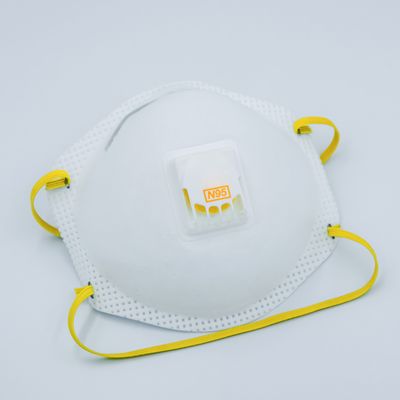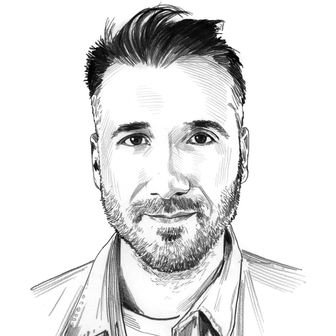
With more than 175 confirmed cases of the novel coronavirus in the U.S. and a great many more expected in coming weeks and months, health-care workers across the country are preparing for a storm. But even that preparation is a challenge: Hospitals are already dealing with a worldwide shortage of personal protective equipment — including N95 masks. Unlike flimsy surgical masks, which are designed to protect people from the wearer, N95s are respirators that, when used properly, can filter out 95 percent of airborne particles that can carry a virus like SARS-CoV-2, which causes COVID-19. Doctors and nurses rely on N95s to prevent viruses from spreading inside hospitals, but the past two months have seen a massive disruption in supply chains and an unprecedented consumer run on the masks. Now, many suppliers are telling hospitals that deliveries of the masks cannot be guaranteed in the coming months.
“Obviously, there are extreme levels of anxiety driven by mass panic,” said Michael Einhorn, president of Dealmed, a Brooklyn-based medical supply manufacturer and distributor. “It’s not just about the virus spreading — the hub of manufacturing for these nonwoven, gauzy products is the area around Wuhan.”
Before the outbreak, China produced about half of the world’s sanitary masks (7 billion a year) and 90 percent of the surgical masks in the United States. With Hubei province ravaged by coronavirus, manufacturers in the United States, Japan, and Europe are scrambling to meet the global demand.
Dealmed is one of the few distributors in New York that still has a limited supply of N95 masks, thanks to a strict need-based allocation policy the company implemented in early January. As a result, Einhorn is now fielding calls from hospital administrators jockeying for supplies. Last Friday alone, Einhorn spoke with executives from three different New York City–area hospitals — including two hospital presidents — lobbying him for a greater share of Dealmed’s supply. Mask scavengers drove Dealmed’s call volume up 400 percent last week, Einhorn estimated. It is up to Einhorn to decide what to do with the supplies he has left. “We take that decision very seriously,” he said. “What’s more important, dialysis centers or a hospital? These are real moral questions.”
Dynarex, a protective-equipment manufacturer based in Orangeburg, New York, is also being inundated by hundreds of calls and emails. It’s not just local health-care providers who are trying to stock up; many of the requests are coming from hospitals and employers in China desperate for supplies, as well as multinational corporations looking for masks, gowns, and gloves. “I’ve had emails and phone calls from Apple, from Facebook, from big companies that are trying to find new channels,” said Bill Roberts, Dynarex’s VP of global sales.
Supply-chain disruption isn’t the only factor depleting reserves. In New York, worried shoppers have picked over shelves at neighborhood pharmacies, Duane Reades, and Home Depots. Nearly every store has been sold out since early February. Amazon and Walmart are also largely sold out.
Experts generally agree that N95 masks have little value in the community. The mask’s effectiveness depends on fit, environmental conditions like airflow, and the way someone handles it. Without proper training, the average person may not benefit at all.
“Seriously people - STOP BUYING MASKS!” the surgeon general tweeted over the weekend. “They are NOT effective in preventing general public from catching coronavirus, but if healthcare providers can’t get them to care for sick patients, it puts them and our communities at risk!”
The anxiety at health-care facilities may be underreported because hospitals don’t want to scare potential patients. “We still want people to come to the hospital when they’re sick,” said Saskia Popescu, a senior infection-prevention epidemiologist for a hospital system in Phoenix. “But it’s something that we’re all dealing with. There is a shortage. There are efforts to be smart and good stewards with our resources.”
In China, electronics manufacturer Foxconn, which makes the Apple iPhone, started making masks at a factory last month, as did several carmakers that have converted production lines with the hopes of manufacturing 5 million masks per day. The Trump administration has contracted 3M to produce 30 million masks in the United States, a fraction of the 300 million masks that Health and Human Services Secretary Alex Azar told lawmakers the U.S. needed to stockpile. Reuters recently reported that the administration is considering invoking special powers to rapidly expand manufacturing.
Officials in New York City and State are adamant that hospitals are prepared for a pandemic. The state has supplies stockpiled in three anonymous warehouses, according to the New York Times. Past outbreaks, such as SARS, MERS, and H1N1, inspired runs on medical supplies. When news broke of a novel coronavirus, Dynarex, the manufacturer in Orangeburg, sold off a reserve of N95s left over from the H1N1 scare in 2009 within a week. Now, Dynarex’s supply of surgical masks, gowns, gloves, and hand sanitizer is depleting.
“I’ve been through several of these cycles,” said Einhorn. “None of them compare at all to the coronavirus. This one is the big kahuna.”






























